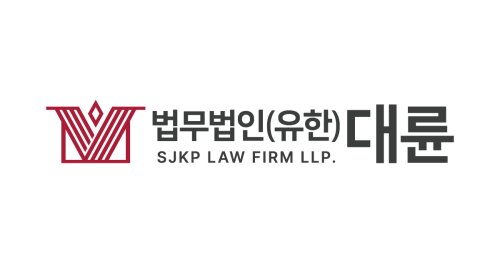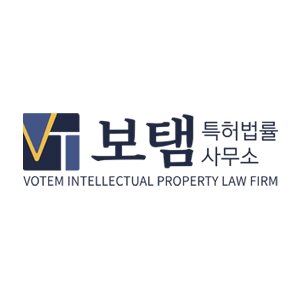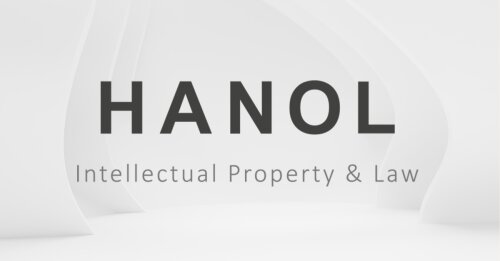Best Antitrust Litigation Lawyers in South Korea
Share your needs with us, get contacted by law firms.
Free. Takes 2 min.
Or refine your search by selecting a city:
List of the best lawyers in South Korea
About Antitrust Litigation Law in South Korea
Antitrust litigation in South Korea refers to legal actions involving violations of the country’s competition laws. These laws are designed to promote fair competition and prevent practices that restrain trade or exploit consumers. The Fair Trade Act is the primary legal framework governing antitrust matters in South Korea. It regulates unfair trade practices, prohibits cartels, and monitors business mergers and acquisitions to ensure competitive markets. The Korea Fair Trade Commission (KFTC) is the main regulatory body that enforces these laws, investigates complaints, and can impose significant penalties for violations. Antitrust litigation often arises from disputes involving monopolistic behavior, price fixing, cartel agreements, and abuse of market dominance.
Why You May Need a Lawyer
There are several reasons why you may need legal assistance for antitrust litigation in South Korea. Here are some common situations:
- If your business is under investigation by the KFTC for alleged anticompetitive behavior, such as participating in a cartel or abusing market dominance.
- When you are a competitor or consumer who suspects unfair practices like bid rigging, price fixing, or exclusive dealing by another company.
- During merger and acquisition transactions where antitrust clearance or regulatory approval is required.
- If you need to respond to or challenge penalties, fines, or remedial orders imposed by the KFTC.
- When seeking to file a civil lawsuit against a business for damages resulting from anticompetitive conduct.
- If you are named as a defendant in an antitrust lawsuit or administrative proceeding.
An experienced lawyer can help you understand your rights, develop a strategy, collect evidence, and represent you before regulatory authorities or in court.
Local Laws Overview
The core legal framework for antitrust issues in South Korea is the Monopoly Regulation and Fair Trade Act, commonly known as the Fair Trade Act. Key aspects of this law include:
- Cartel Prohibition: It prohibits businesses from engaging in collusive activities such as price fixing, output restriction, and bid rigging.
- Abuse of Market Dominance: Firms with significant market power cannot engage in conduct that unfairly restricts competition, such as predatory pricing or forced exclusive agreements.
- Merger Control: Companies must notify the KFTC of mergers and acquisitions that meet certain size thresholds. The KFTC reviews these deals to prevent market concentration that could harm competition.
- Unfair Trade Practices: The Act also covers unfair methods of competition, including wrongful use of trade secrets, false advertising, and coercive sales practices.
- Penalties: The KFTC can impose administrative fines, order corrective measures, and in severe cases, seek criminal prosecution.
- Private Damages Actions: Victims of anticompetitive conduct can pursue compensation through civil lawsuits. South Korean courts may require businesses found liable to pay damages to affected parties.
Frequently Asked Questions
What is the Korea Fair Trade Commission (KFTC)?
The KFTC is the governmental authority responsible for enforcing antitrust and competition laws in South Korea. It investigates potential violations and has the power to impose sanctions.
What types of conduct are considered illegal under Korean antitrust law?
Illegal conduct includes price fixing, bid rigging, abuse of dominant market position, exclusive dealing, resale price maintenance, and unfair trade practices.
Do I need to report mergers or acquisitions to the KFTC?
Certain mergers and acquisitions must be reported to the KFTC if the parties exceed specific asset or turnover thresholds. The KFTC will then assess whether the transaction would substantially lessen competition.
What penalties can the KFTC impose for antitrust violations?
The KFTC can impose administrative fines, issue corrective orders, and refer cases for criminal prosecution. Individuals involved may face personal liability as well.
Can individuals or companies sue for damages resulting from antitrust violations?
Yes, parties harmed by anticompetitive conduct can file civil lawsuits seeking compensation for damages in addition to regulatory action by the KFTC.
How long does an antitrust investigation typically take?
The duration varies depending on complexity, but investigations can last from several months to several years, especially if the case involves multiple parties or jurisdictions.
What should I do if my company is under investigation by the KFTC?
Seek legal advice immediately, cooperate with the investigation, and ensure all communications with the KFTC are accurate and complete. An attorney can help protect your rights and interests.
What are my rights during an antitrust investigation?
Businesses have the right to legal representation, to receive notice of specific charges, and to contest KFTC findings through administrative or judicial review.
Are there leniency programs for companies that disclose involvement in cartel activities?
Yes, the KFTC offers leniency programs that provide reduced penalties or immunity for companies that voluntarily self-report and cooperate with investigations.
Can foreign companies be subject to South Korean antitrust laws?
Yes, foreign companies whose conduct affects the South Korean market can be investigated and penalized under the Korean Fair Trade Act.
Additional Resources
If you need further information or assistance, consider reaching out to these resources:
- Korea Fair Trade Commission (KFTC) - The official regulatory authority for competition matters.
- Korean Bar Association - For information on qualified legal professionals specializing in antitrust law.
- Korea Consumer Agency - Assists consumers with complaints and disputes, including certain antitrust matters.
- Ministry of Justice - Oversees legal system developments and provides public resources.
- Academic and Professional Journals - For in-depth commentary on recent case law and regulatory changes.
Next Steps
If you believe you are involved in or affected by an antitrust issue in South Korea, consider the following steps:
- Consult with a lawyer experienced in antitrust and competition law to evaluate your situation.
- Gather and organize all relevant documents, correspondence, and evidence related to the matter.
- Do not destroy or alter any documents that may be relevant to an investigation or litigation.
- If contacted by the KFTC, respond promptly but seek legal guidance before making statements or submissions.
- If you are considering reporting anticompetitive behavior, discuss potential leniency options and whistleblower protections with your lawyer.
- Stay informed about your rights and obligations by regularly reviewing updates from regulatory authorities or professional organizations.
Taking prompt and informed action, with the assistance of a skilled legal professional, can help protect your interests and ensure compliance with South Korean antitrust laws.
Lawzana helps you find the best lawyers and law firms in South Korea through a curated and pre-screened list of qualified legal professionals. Our platform offers rankings and detailed profiles of attorneys and law firms, allowing you to compare based on practice areas, including Antitrust Litigation, experience, and client feedback.
Each profile includes a description of the firm's areas of practice, client reviews, team members and partners, year of establishment, spoken languages, office locations, contact information, social media presence, and any published articles or resources. Most firms on our platform speak English and are experienced in both local and international legal matters.
Get a quote from top-rated law firms in South Korea — quickly, securely, and without unnecessary hassle.
Disclaimer:
The information provided on this page is for general informational purposes only and does not constitute legal advice. While we strive to ensure the accuracy and relevance of the content, legal information may change over time, and interpretations of the law can vary. You should always consult with a qualified legal professional for advice specific to your situation.
We disclaim all liability for actions taken or not taken based on the content of this page. If you believe any information is incorrect or outdated, please contact us, and we will review and update it where appropriate.
Browse antitrust litigation law firms by city in South Korea
Refine your search by selecting a city.















